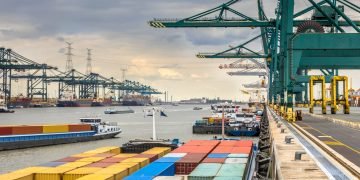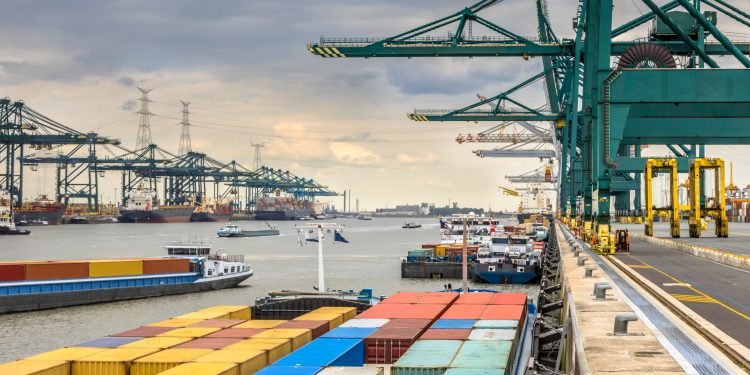By Maria Kalamatas | August 5, 2025
Antwerp, August 5 — In the outer anchorage, ships are lining up again. At first, it looked like a seasonal fluctuation. But now, with berthing delays stretching past eight days, port managers in Antwerp and Rotterdam are facing a growing backlog — and few quick fixes.
“It started with a single terminal falling behind,” said a barge coordinator working near the Port of Antwerp. “Now it’s everywhere — river barges, trucks, cranes. Everything’s slowed down.”
More volume, less flexibility
Terminal operators blame a mix of high vessel arrivals, delayed transshipments from Asia, and labor shortages that haven’t eased since early summer.
Some importers rerouted through the North Sea expecting smoother flow than in southern Europe. But that bet seems to have backfired. Instead, congestion has quietly crept back into northern logistics routes.
In Rotterdam, several forwarders reported that containers are sitting idle for over 72 hours before clearing customs.
Barge movements at a crawl
Inland navigation is also under pressure. Barges moving cargo to and from Belgium, Germany, and the Netherlands are facing wait times of up to 56 hours.
“It’s not just at sea,” said a logistics manager based in Düsseldorf. “Even river cargo is stuck. You plan for 24-hour movement and get none. That throws off everything.”
Smaller operators have been forced to divert to secondary terminals or delay pick-ups, frustrating shippers relying on synchronized supply chains.
No single cause, no easy fix
Port authorities acknowledge the strain, but say there’s no one reason behind the congestion. A mix of factors — equipment repositioning, staffing gaps, and scheduling conflicts — have built up over weeks.
Some terminals are operating at full capacity but lack yard space. Others are short on trained handlers. Even weather played a part, with recent storms disrupting berthing schedules.
As one shipping executive put it, “It’s not a collapse. It’s friction. But friction slows everything down.”
A warning sign for the weeks ahead
With harvest exports, back-to-school volumes, and peak season approaching, pressure isn’t expected to ease soon. Forwarders are now advising clients to build in extra days for arrivals and consider alternate ports when possible.
There’s no panic. But there’s no room for error either.
And in the tight world of maritime logistics, that’s often all it takes to cause ripple effects hundreds of kilometers inland.























